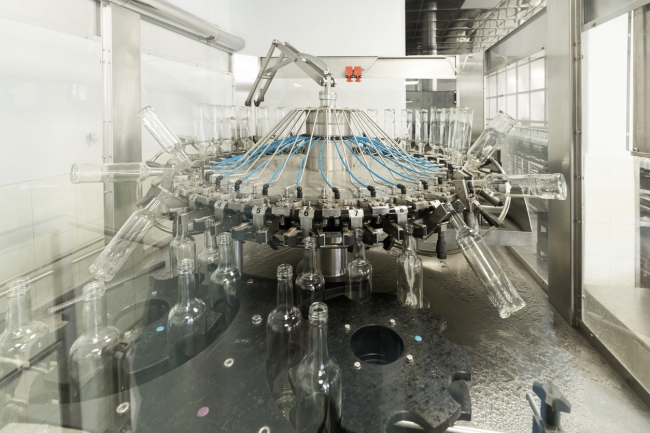3 minute read
Top tips for manufacturers to stay on course for business growth
With the dawn of Industry 4.0, manufacturers now have access to an abundance of new technology, tools, and services to help them stay one step ahead of competitors. However, amid the innovation buzz, it is crucial for companies to ensure they focus on working smartly and efficiently in order to stay on the right path to business growth. Terri Hiskey from Epicor looks at the top practices for a top-performing production floor.
We have observed some common trends across our customers experiencing high growth. These manufacturers have successfully developed best practices on the production floor that support and enable the implementation of transformative technologies, seamlessly work with existing business processes, and drive further growth as a result. These best practices identified fall in to the following three key areas.

Some manufacturers have developed best practices that support & enable the implementation of transformative technologies which seamlessly work with existing business processes / Picture: Getty/iStock
1 – Production planning and scheduling
One of the first steps in the production day is to plan what products need to be produced to satisfy existing orders, and to schedule production. Top-performing manufacturers concentrate on four practices to maximise production.
Define existing capacity for production. A realistic assessment of production capacity includes factors such as the availability of machine time, the flexibility of the various types of machines for different tasks, and the availability of skilled labour within the organisation.
Improve accuracy of production scheduling. The master method of manufacturing provides a way for companies to continuously refine both manufacturing processes and the time allocated to them. For example, the load time (the amount of time it takes for production) could be stored for each job operation, and recalled to improve scheduling accuracy for future quotations as well as for production.
Use technology to enhance production control. An accurate schedule should be available not only to those in production planning, but also to people on the shop floor who may be actively managing or producing product. An ERP system has these capabilities and is flexible enough to accommodate changes.
Communicate the schedule to all stakeholders in the organisation. The availability of schedules online means that anyone connected to the manufacturing process has accurate, up-to-date information to make good production decisions.
A compelling case for cloud deployed Epicor ERP is the ease with which cloud deployment makes key workflows available across the enterprise—and the global supply chain. Because nothing more than an Internet-connected PC, tablet, or smart phone is required, cloud deployment is the most effective way to bring accessibility and integration to most organisations.
2 – Production management
Another area of focus for top manufacturers is the production management process. There are four key tasks vital to this process.
• Execute the production plan according to the schedule established earlier. The process should be the same whether it calls for a single day or a week’s worth of production
• Manage changes in production in a proactive way to minimise the impact of changes on the overall schedule
• Increase the visibility of the entire production process so that the production schedule, materials management, current production operations, and quality are available to the organisation
• Close the finished job. Many manufacturers miss this opportunity to implement continuous process improvement. The ability to compare expected costs and labour against actual results is critical to driving the organisation toward more efficient manufacturing processes

The 3 top priorities should be production planning & scheduling, production management and a focus on quality / Picture: Getty/iStock
3 – Quality
A final area where top-performing manufacturers excel is in maintaining quality throughout the production process. They do this by instilling quality principles throughout the organisation.
• Tracking quality incidents in a systematic way on a regular basis, beginning with the production floor
• Identifying the root cause of a quality problem so that quality issues can be avoided in the future
• Making quality in the production cycle an organisational objective
Implementing these three areas correctly can set manufacturers on the right path to business growth. Maximising production, increasing operational visibility, and introducing solid quality standards helps top-performing manufacturers streamline their efforts and remain agile in the age of digital transformation.
Those who stay focused on pursuing best practice will be the ones best prepared to take on new technology, tools, and services that help them achieve and manage business growth. However, the journey to meeting growth ambitions can present manufacturers with further challenges and to avoid the potential pitfalls, there are more recommended steps to set their business on the right growth path.

Epicor VP of product marketing for manufacturing, Terri Hiskey / Picture: Epicor
